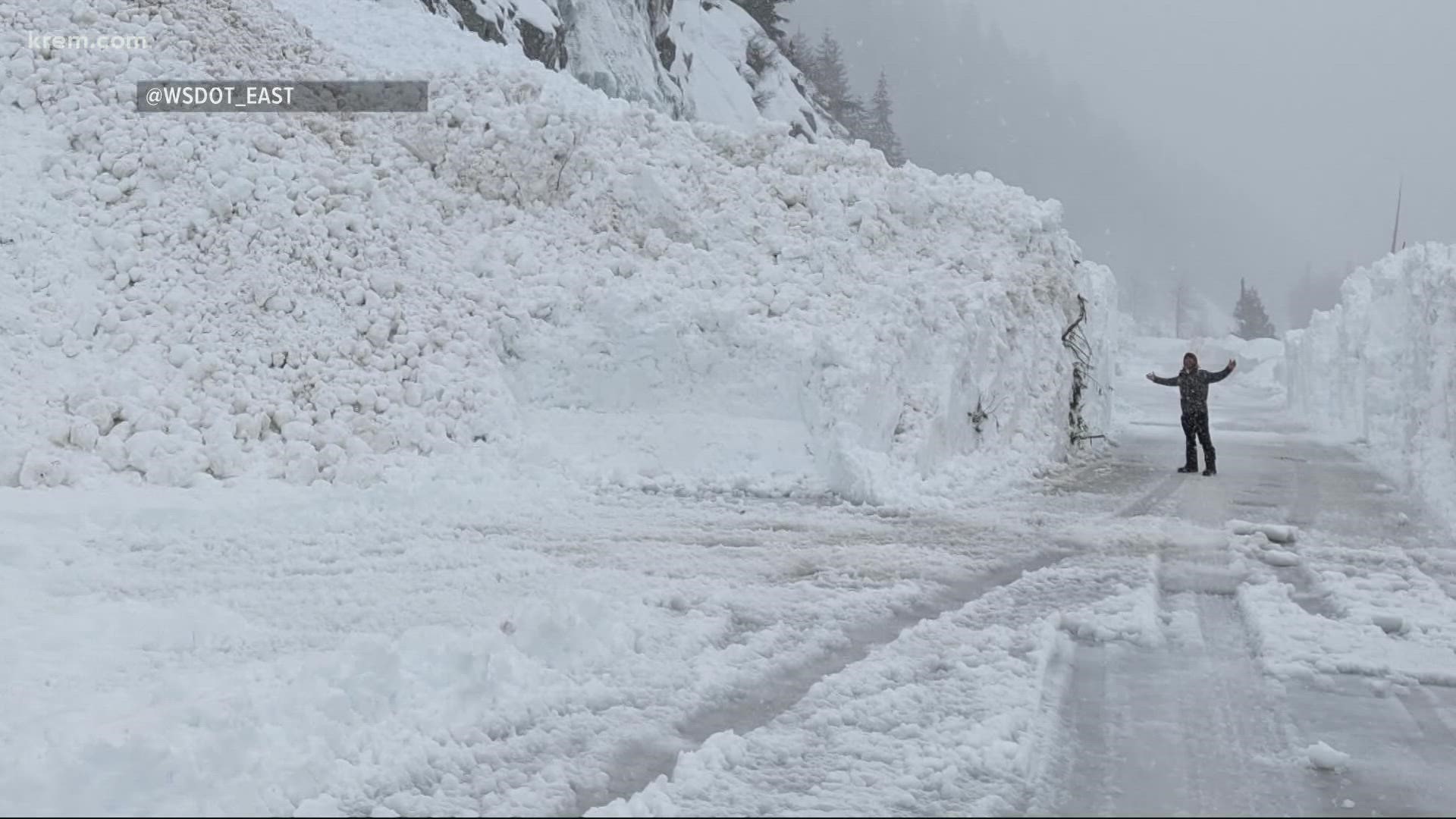SNOQUALMIE PASS, Wash. — The Washington State Department of Transportation (WSDOT) had to close all of the state's mountain passes last week amid a historic snowstorm, leaving drivers and freight with no land route from one side of the state to the other.
In the case of Snoqualmie Pass, the four-day closure was one of its longest, but not unprecedented.
"History repeats itself," said Meagan Lott, WSDOT Spokesperson. "We saw similar conditions back in 2008, 1996, and 1990, with extended closures, with similar closures."
With the long closure, some people have questioned if the length of the closure was influenced by a staffing shortage caused by Gov. Jay Inslee's vaccine mandate. According to Lott, that isn't the case.
There have been four-day closures of Snoqualmie Pass in the past, with the most recent one being in 2008. WSDOT data shows that the four-day closure in 2008 started on a day when the snow accumulation was the same as the first day of last week's closure. Snoqualmie had seen a foot of new snow on Jan. 29, 2008, just a couple inches less than the new snow total last Thursday.
COVID-19 and Inslee's vaccine mandate that stemmed from it didn't exist at that time.
"We could have an unlimited amount of employees, but when you're dealing with that type of weather, it doesn't matter how much staff you have," Lott said. "It's going to be a challenge."
Lott said WSDOT had about 1,500 employees before the pandemic. Not counting other reasons for leaving, she said the department lost about 403 employees due to the mandate, but through rehiring efforts, are now only down a total of about 140 staff members since Inslee's deadline.
The extended closure was instead due to safety concerns, according to Lott.
"We're dealing with avalanche danger, we were dealing with several feet of snow accumulating on overhead signs that we didn't want falling onto traffic moving underneath," she said. "We also had crews seeing trees fall as they were plowing snow and hearing trees crack as they're out on the road."
Lott also said WSDOT moves crews around to accommodate severe weather events like last week's storm. She added that the department actually had enough staff to operate all of the available equipment on the passes, so more employees wouldn't have sped up clearing efforts.
KREM reached out to the Washington Federation of State Employees, which is the union representing those working for WSDOT, through multiple methods, but have not heard back.

